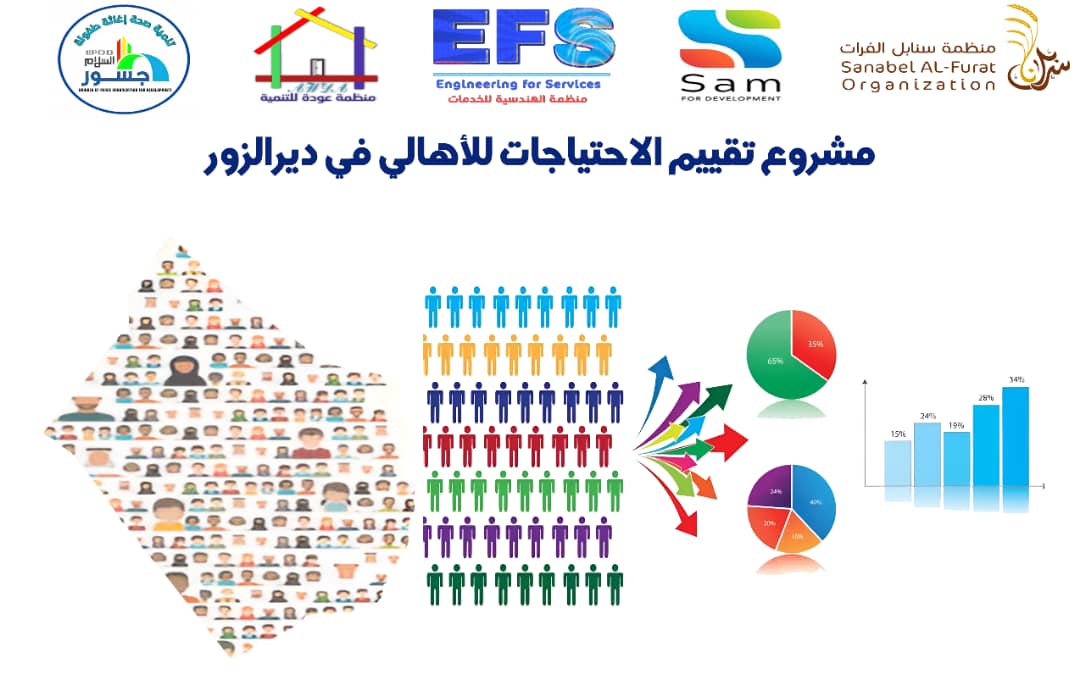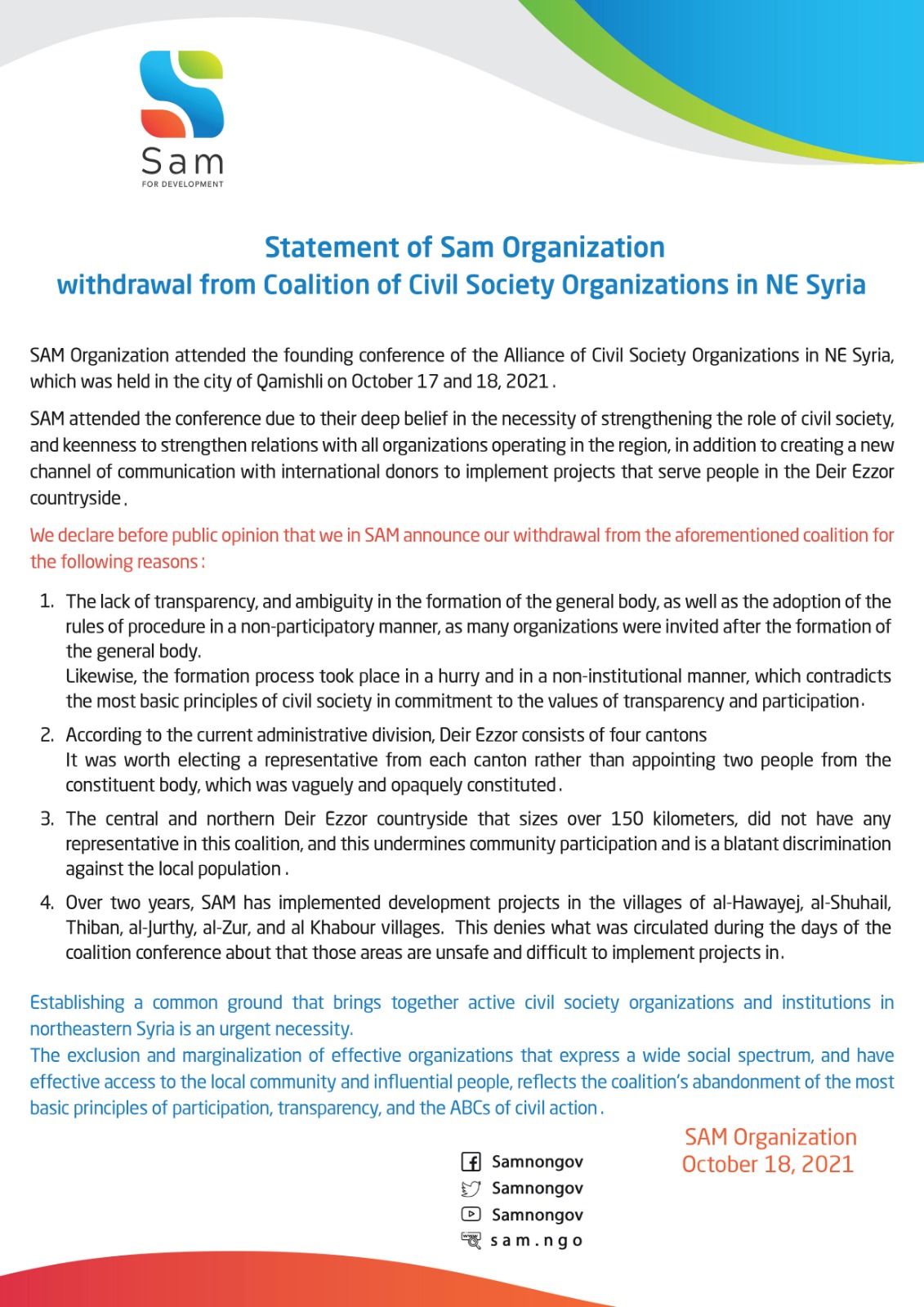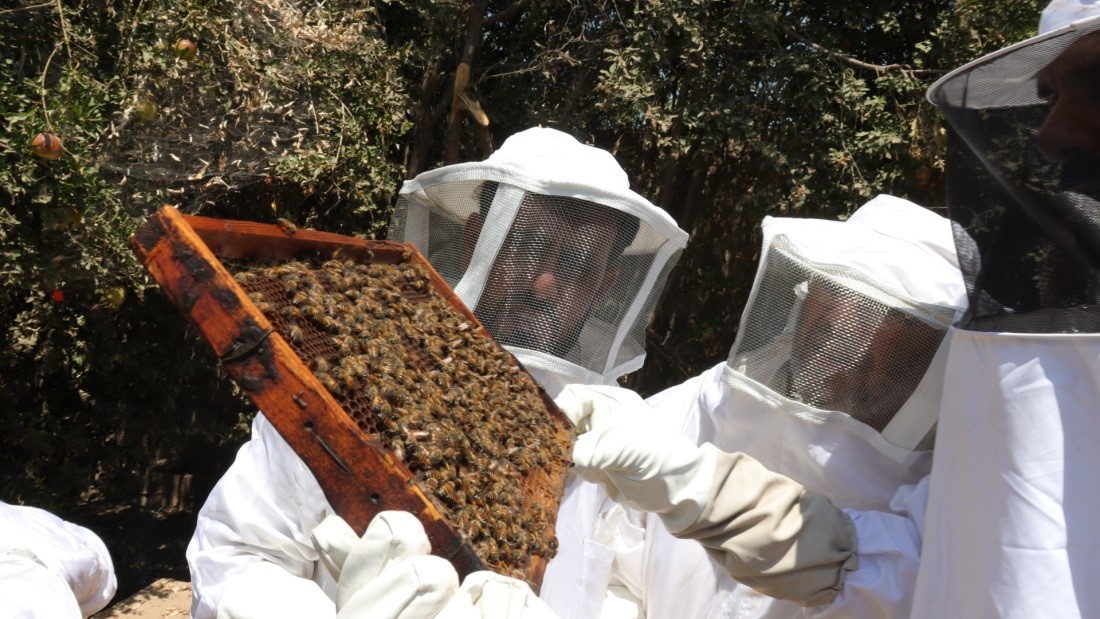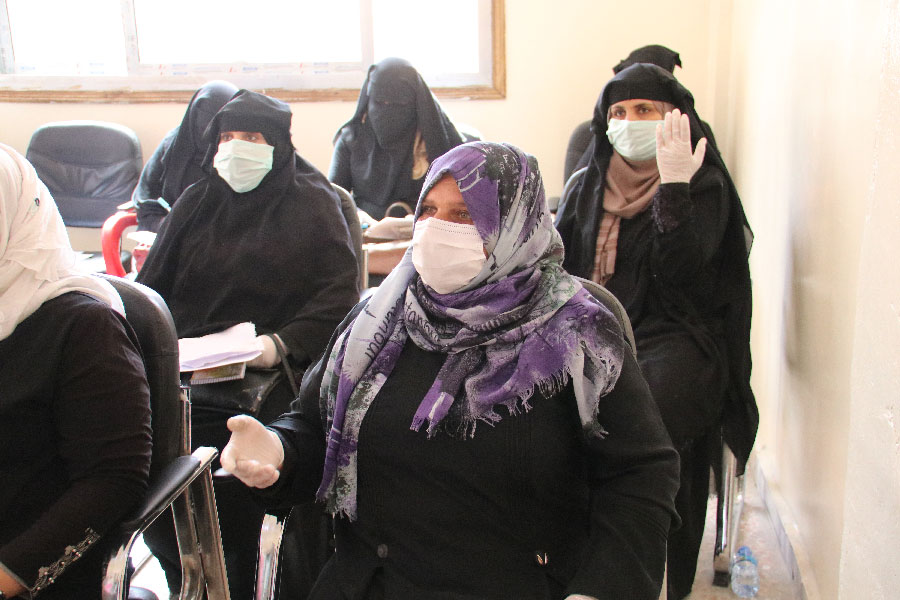Project period: 3.5 months
Targeted area: Al-Zir, al-Shaheil, al-Hawyej, and Thiban villages
The project started on June 15, 2021, and will end on September 30, 2021. The project targeted 38 beekeepers as the following: 17 beekeepers in Al-Shaheil, 2 in al-Zir, 8 in Thiban, and 11 in al-Hawayej.
During the project, the organization’s team distributed beekeeping equipment and supplies to each beneficiary beekeeper like (beekeeper suit, gloves, rain boots, 10 beekeeping boxes for each beekeeper, honey extractor, nets, queen excluders, wires, wax, forage supplements for bees, medicines for bees, 200 plastic packages for each beekeeper, smoker, pasteurizer and electrical wiring device. One dunum of alfalfa was planted as a pasture crop for bees for each beekeeper with all his requirements such as plowing, seeds and fertilizers. Experts in beekeeping held a practical and theoretical course for beekeepers who obtained extensive information about modern ways of beekeeping. Later, the experts followed up with the beekeepers and overviewed the obstacles of beekeeping and helped the beekeepers overcome them.
Agricultural engineers monitored alfalfa cultivation to ensure better growth of this plant.
This project is considered one of the pioneering projects in the area, which targets for the first time the beekeeping profession in the mentioned villages.
The project achieves the following goals:
Supporting beekeepers with bee supplies that last for many years, as well as technical support, which increases beekeepers’ income and encourages them to settle and develop their economic activity. Enriching the local market with bee products (honey – wax – pollen – bee parcels – bee venom) at competing prices. Providing a sustainable impact to this project by benefiting for many years from the project’s inputs and encouraging the people of the area in general to work in this profession, which has deteriorated due to the conditions of war.
Challenges:
The statistics teams worked under high temperatures due to the heat wave in Eastern Syria, and the temperatures were higher than their average in this period of the year, as the temperature reached 47 degrees. Beekeepers who are below the standards set by the organization pressured to obtain beekeeping inputs.
The people pressured for employment in the project due to the deteriorating living situation in the east of the Euphrates areas, due to the lack of support and the lack of livelihood improvement projects that would improve their economic conditions.
The lessons learned:
Imposing a delay penalty on suppliers in the event of their delay in supplying the materials agreed upon in the tenders, so that they supply the materials within the agreed period, and carry out project activities in accordance with the work plan.
Try to pick the opinions of more stakeholders and know all the supplies and equipment they need to support and develop their profession.
Preparing the list of reserve suppliers in case the supplier does not comply with the provision of supplies according to the quality and delivery period specified in the contract.






